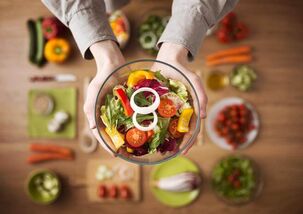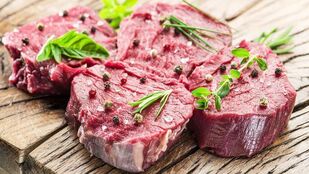Amazing Japanese cinema and animation with authentic atmosphere, wonderful visuals, amazing beauty and slimness of Japanese women. The Japanese are recognized as the thinnest people in the world. The secret lies not only in lean country characteristics, but also in moderation in healthy diets and diets. The name "Japanese diet" alone has sparked curiosity. What does it take to turn into a fragile geisha? Find it out!
The reason why the Japanese diet is called so is probably not clear, but the results of this approach are impressive - in two weeks you can lose 4-8 kg, depending onoriginal weight. One source said that this approach was developed at a clinic in Tokyo, meanwhile, another approach - the transparency of the rules and diet determines a clear path to achieving entry. this pepper. Those who try will be rewarded - reminiscent of a samurai style.
The 14-day Japanese diet (original version) is known worldwide, listing of affordable and affordable products. Japanese nutritionist Naomi Moriyama asserts that low-carbohydrate foods and moderate serving sizes help maintain youth and longevity.

According to Moriyama's research statistics, Japanese people consume 25% less calories than other countries. Fatty foods, fatty foods and the industrial use of avocado are not widespread in the country. Healthy food and small serving sizes are a hallmark of Japanese culture.
This principle corresponds to the menu of the Japanese diet for 7 days or for 2 weeks, regardless of the difference in ingredients with that of the sunrise country residents.
In this article we will analyze:
- principles that the Japanese weight loss diet recommends;
- pros and cons of the approach;
- is not suitable for a Japanese weight loss diet due to health reasons;
- basic menu for 7 and 14 days;
- has stick with.
Japanese Samurai Diet Rules
For the 7, 13, 14 day Japanese Diet to work, you must follow these rules:
- preliminary preparation - one week before starting, give up fast food, fatty, sweets, savory dishes;
- completely removes salt, sugar, spices, sauces from the diet;
- chew food well to make it full;
- pre-compiled menus for the Japanese diet are strictly followed for a selected period of time (7, 13, 14 days);
- is not allowed to change the order according to the date of the food;
- after waking up, please drink a glass of warm water;
- coffee can be replaced with green tea;
- Follow the diet - at least 2 liters of filtered water. Rotting products of animal protein are excreted and filling the stomach, soothing hunger;
- prohibits the unauthorized substitution of ingredients or addition of products;
- frequency of application of the method - 2-3 times a year. This is because the body is under a high level of stress;
- exit from the diet must go smoothly so that lost fat does not return;
- The Japanese weight loss diet uses protein-rich foods as the main source. Small amounts of carbohydrates in the form of crackers and fiber, and unrefined oils are used as sauces for salads, meat and fish.

The strict Japanese diet contains all the macronutrients in its diet, although there are some caveats. In this regard, this method cannot be described as balanced, so the Japanese diet is followed for 7 to 14 days so as not to cause harm to health.
Even for two weeks, a protein diet can decrease vitality, indifference and headaches due to the low amount of carbohydrates in the diet. At the first sign of serious illness, the use of complex carbohydrates or complete refusal of the diet is recommended.
Features of the strict Japanese weight loss diet
First association of the name "Japanese Diet" - in 14 days the menu changed to sushi, rice and curry for breakfast, lunch and dinner every day but in limited quantity. In fact, some of the characteristics of this approach stand out:
- subsections;
- calorie intake - 800 kcal;
- eat exactly 3 times a day, no snacks;
- 14 days - period maximum; Exclude salt
- .
The Nature of Diet

The basic rule is that the Japanese thirteen-day diet restricts eating any sugar, salt and carbohydrates. In 7, 13 or 14 days, you can lose up to 8 kg of excess weight. Deficiencies of micronutrients and macronutrients can cause serious disruptions in the functioning of the body, so it is extremely undesirable to adhere to this method longer.
There is a 13-day salt-free Japanese diet, as Eastern people consider lucky numbers. However, in Europe, the number is perceived differently, so due to suspicion and convenience, weight loss lasts 7 or 14 days.
Contraindications
The Japanese diet for a week or two is considered rigid and has some contraindications:
- is used to increase blood pressure, heart disease, blood vessels;
- diabetes mellitus;
- a thyroid disorder;
- during pregnancy and lactation;
- gastrointestinal disease of any complexity, kidney disease;
- when playing sports;
- works hard physically and mentally.
When you have questions about quickly getting rid of the pounds gained from a party, you should prioritize fasting days - this won't harm your health, help reduce digestion and eliminate intake. Water accumulates during the festival.
Advantages
The 7 and 14 day salt free Japanese diet is gaining popularity these days. What attracts the method:
- effectiveness of weekly weight loss;
- removes water from the body;
- Easy diet and affordable ingredient.
The initial results of the Japanese diet are impressive. At this time, the phenomenon of maximum weight loss due to "ballast" excretion of water due to elimination of salt and minimal consumption of carbohydrates occurs. During the second week, the weight is not reduced positively, since there is no excess water. Less energy comes from food, so the body is forced to break down its own fats.
However, along with fat, muscle tissue is broken down. If maintained for a long time, in addition to declining health, the quality of the body will still be undesirable. It's worth considering if it's worth it.
Cons

The low-salt, low-carb Japanese diet has no consequences. Cons of the method:
- excessively low in calories (800 kcal) slows down metabolism;
- worsening of chronic illnesses;
- restricts micro and macroscopic factors disrupting the full functioning of the body;
- high stress level for functional systems;
- drinking coffee instead of breakfast replenishes the work of the heart and blood vessels;
- a meager and limited menu causes psychological pressure, leaving you prone to spoiling;
- the feeling of systemic hunger, reducing concentration of attention;
- high fatigue, irritability, lethargy, decreased performance, dizziness;
- goes back strongly to a regular diet that helps to return the lost kilograms with weight gain.
Recommended and prohibited products
No matter how romantic the name of the weight loss method sounds, it won't be strange. The foods in the Japanese salt-free diet are very familiar to Europeans. The ingredients are available at supermarkets or eateries and are affordable.
Meat and fish dishes with vegetables as a side dish are popular. But the exclusion of salt and spices, bread, cereals and pasta becomes a psychological test.
List of Allowed Foods for Menu Combination:

- protein - sea fish, beef, veal, chicken fillet, eggs, low-fat hard cheese; Beverages
- - water, natural coffee, green tea, homemade tomato juice without salt, kefir 0, 1-1%;
- black bread;
- fiber (vegetables) - carrots, cabbage, zucchini, eggplants, turnips;
- fat - unrefined oil (olives, plants);
- fruits - green apples and pears, citrus fruits.
Food ingredients that are not on the list are still prohibited.
Menu in 7 days
In the Japanese 14-day diet, limited foods, and specific nutrition facts will help you verify this.
Dates / Meals |
Breakfast |
Lunch |
Dinner |
Monday |
Coffee |
2 eggs, 1 tomato juice, cabbage salad with butter |
200 g sea fish |
Tuesday |
Coffee, crouton black bread |
200 g fish, cabbage salad with butter |
100 g of beef, one glass of kefir |
Wed |
Coffee |
1 egg, salad of 3 large carrots boiled in butter |
2 apples |
Thursday |
Coffee |
Pumpkin or radish, 1-2 apples |
100 g beef, cabbage salad, 2 eggs |
Friday |
1 boiled or raw carrot with lemon juice |
500 g sea fish, a glass of tomato juice |
2 apples |
Saturday |
Coffee |
500 g chicken breast, cabbage salad with carrot (or an ingredient) |
2 eggs, butter carrot |
Sunday |
Coffee |
100 g beef, 2 apples or pears |
Any variation of the previous days except apples |
Method of processing product: steaming, boiling, baking. Roasting is excluded.
The 14-day Japanese diet: The main takeaway

If the first week is used without deterioration and your health allows you to continue, then in the second week the menu for the first seven days is repeated or the menu is replaced. change a little bit.
Menu in 14 days
No rearrangement of meals or dates is allowed.
1 day |
Breakfast: unsweetened milk coffee / green tea Lunch: stewed cabbage with some olive oil, tomato juice, 2 hard-boiled eggs Dinner: 200 grams of boiled fish |
Day 2 |
Breakfast: a small piece of toast made of rye, coffee or green tea Lunch: 200 g boiled fish, cabbage salad with butter Dinner: 100 g of boiled beef, 1 cup of kefir 0, 1-1% |
Day 3 |
Breakfast: a small piece of toast made of rye, coffee or green tea Lunch: fried zucchini or eggplant with vegetable oil (unlimited quantity) Dinner: 200 g boiled beef, white cabbage with a little oil, 2 boiled eggs |
Day 4 |
Breakfast: grated carrots with lemon juice Lunch: 200 g boiled fish, a glass of tomato juice Dinner: 200 grams of apples |
Day 5 |
Breakfast: grated carrots with lemon juice Lunch:200 g boiled fish, a glass of tomato juice Dinner:200 grams of grapefruit |
6 days |
Breakfast:coffee or green tea Lunch:boiled chicken fillet, cabbage and carrot salad with vegetable oil Dinner:2 hard-boiled eggs, chopped fresh carrots |
7 days |
Breakfast:coffee or green tea Lunch:200 g of boiled beef Dinner:200 g pears or 200 g boiled fish / b2 hard-boiled eggs with a small fresh carrot / 200 g of boiled beef and 1 glass of low-fat kefir |
Day 8 |
Breakfast:coffee or green tea Lunch:boiled chicken fillet, fresh cabbage salad and carrot with vegetable oil Dinner:2 hard-boiled eggs, a small carrot |
Day 9 |
Breakfast: grated carrots with lemon juice Lunch: 200 g boiled fish, a glass of tomato juice Dinner:200 grams apples |
Day 10 |
Breakfast:coffee or green tea Lunch:1 hard-boiled egg, 3 small carrots, 50 g cheese Dinner:200 grams orange |
Day 11 |
Breakfast: a small piece of toast made of rye, coffee or green tea Lunch:fried zucchini or eggplant with vegetable oil Dinner:200 g boiled beef, 2 hard-boiled eggs, fresh cabbage salad with vegetable oil |
Day 12 |
Breakfast: a small piece of toast made of rye, coffee or green tea Lunch:200 g boiled fish, fresh cabbage salad with oil Dinner: 100 g of boiled beef, 1 cup of kefir 0, 1-1% |
13 days |
Breakfast:coffee or green tea Lunch:2 hard-boiled eggs, boiled cabbage with vegetable oil, a glass of tomato juice Dinner:200 g fish boiled or fried in vegetable oil |
Day 14 |
Breakfast:coffee or green tea Lunch:200 g boiled or fried fish, fresh cabbage salad with oil Dinner: 100 g of boiled beef, 1 cup of kefir 0, 1-1% |
Shopping list for the 14 days of the Japanese diet
For convenience, here's a grocery basket list for the two-week meal:

- coffee (ground or beans) - 1 sachet;
- green tea (without flavoring, additives) - 1 pack;
- chicken eggs - 2 dozen;
- sea fish fillet - 2 kg;
- lean beef - 1 kg;
- chicken fillet - 1 kg;
- unrefined vegetable oil - 500 ml;
- white cabbage - 2 forks;
- carrot - 3 kg;
- zucchini, eggplant - 1 kg;
- apples, pears, citrus fruits - 2 kg;
- tomato juice - 1 l;
- kefir 0, 1-1% - 1 l;
- lemon - 2 fruits;
- rye bread - 1 loaf (oven-dried).
Japanese diet for one month
Do not exercise for more than 14 days due to a monotonous and low-calorie diet. At least in their minds.
Preparation and exit phase
The preparation period is one week. Salt use is minimized, excluding sweets, flour, pickles, preservatives, fruits and berries, and dairy products.
The day before it starts, a day of fasting is held on one product - this will allow the body to adapt to small servings and calories. Warm water will help you satisfy your hunger and chewing well will help you feel full.
If you suddenly go back to a normal diet, it will strain the body, overload the digestive tract and return lost weight. Therefore, the exit from the Japanese diet is organized according to the principles of proper nutrition. Designated menu:

- Breakfast: liquid oatmeal in water with a teaspoon of honey, unsweetened coffee;
- Snacks: some dried fruit and seeds;
- Lunch: boiled beef with brown rice, fresh vegetables;
- Afternoon snack: low-fat cheese with berries;
- Dinner: Vegetable salad with sour cream, grilled fish.
Menu should be maintained for several days, increasing the daily serving to the required daily calorie level.
Why shouldn't you choose the Japanese diet
The Japanese diet does not form healthy eating habits due to its short duration and ease of depression. Lack of guidelines on a healthy diet leads to weakness. If you do not follow the previous menu to get rid of the Japanese diet, then the lost kg will return with the increase, time and health will be lost.
The best solution is to choose a technique that will teach you how to eat properly and become a lifestyle. It can be a bland diet or a fundamental cause of daily calorie deficit with an increase in protein intake.
Weight loss form is the personal choice of each person. But before you do it, it is important to think not only about the feasibility and attainability of the goals set, assess the possibilities and weigh all the pros and cons. Don't forget that health is endowed with life.
Learn more about the Japanese diet
In order to understand the basic rules of such a diet, you need to understand the Japanese person yourself. What do we know about their country? They are characterized by a solid and leisurely approach to any business. And the food is no exception. The Japanese diet has no clear boundaries. It can last from 13 days to 13 weeks.
Someone might find this diet boring and hungry. In fact, her menu is quite satisfying and varied. As we said, it should be incubated for at least 13 days. And the most important thing, just like in any diet for weight loss, is the smooth transition from regular food to diet and vice versa.
The basic principles of the Japanese diet are to accelerate and optimize the body's metabolism. All ingredients of the diet are carefully selected and you should not replace the product with another product, even if the substitute appears to be on par with you. In addition, we do not recommend changing the date order.
Have a light dinner before going on a diet. During the diet, you can eat with chopsticks. Immerse yourself in the atmosphere of the Far East, and the diet won't seem as frustrating and boring as the rest!
Dieting Menu
The Japanese diet, based on the consumption of protein foods for weight loss and restriction of carbohydrates and fats, is quite strict and strict. The menu includes fish, meat, eggs, juices, vegetables as well as boiled water and mineral water
Like any diet, the Japanese diet has its downsides. It is not rich in trace elements and vitamins, it provides for the use of black coffee, so if it is contraindicated for you, see a doctor, they will probably replace it with black tea or tea. blue. You can not use salt, sugar, flour, alcohol.
Conclusion
You may have noticed that the Japanese are usually healthy people, known for their longevity. Have you met overweight people in Japan yet? Rarely. In Japan, it is customary to eat foods with a lower calorie content compared to other parts of the world. People in our regions can also try to lose weight with the Japanese diet, which is considered to be very effective and very popular.
Comments
Opinions about the Japanese diet are quite varied. Some say it's a really effective diet with amazing results, while others find it too harsh. The negative reviews from doctors are based on the fact that the Japanese diet is a burden on the kidneys due to the consumption of protein in large quantities.
Anyway, on your way to achieving a perfect body, be careful with any popular diet. Before starting to lose weight and make any changes in your diet, be sure to consult a therapist, as your main goal is to be your best, not to the hospital.






























